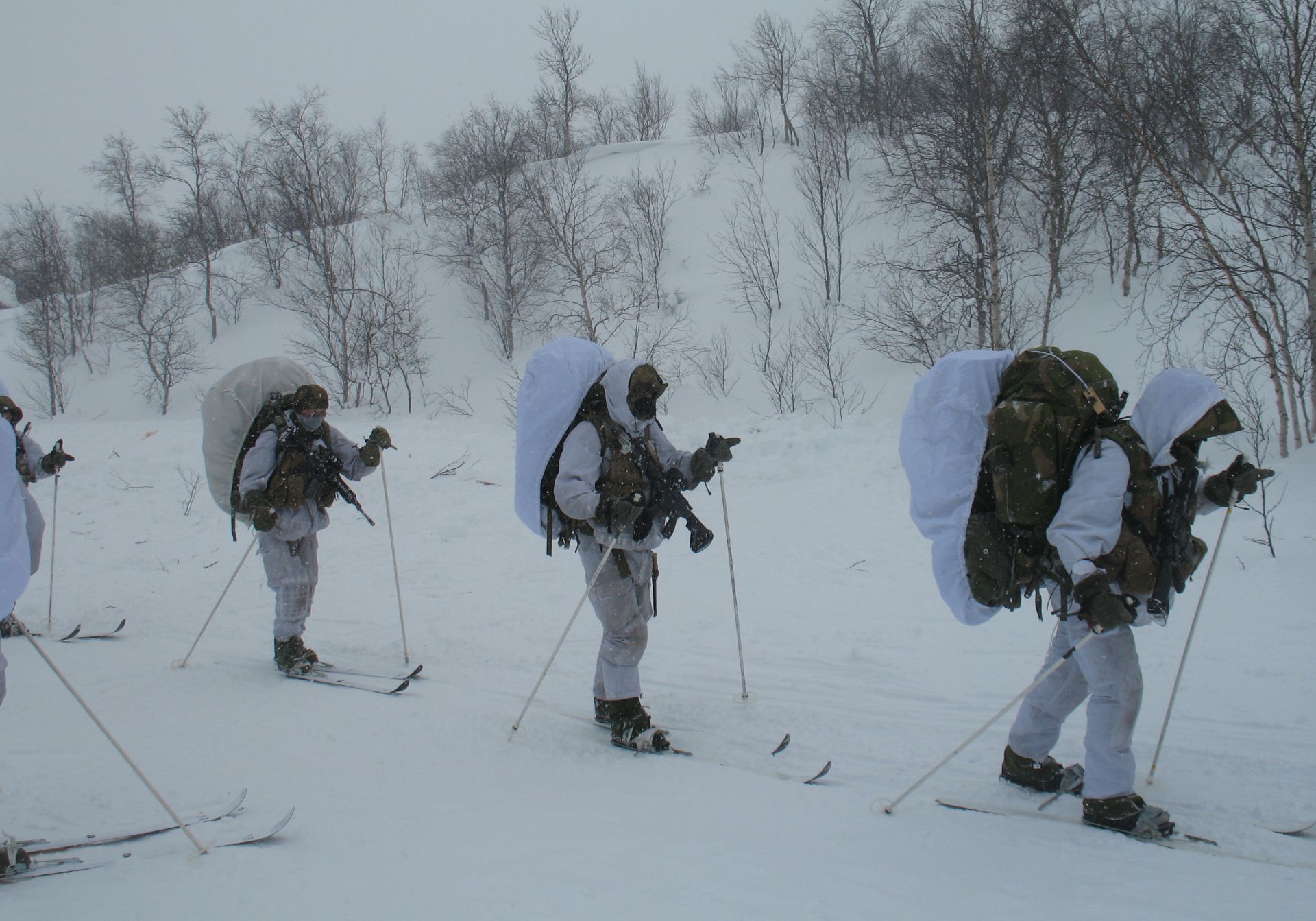The U.S. Army Research Institute of Environmental Medicine, or USARIEM, once again partnered with the Norwegian Defence Research Establishment to study nutrition and physiological responses to cold-weather training.
For the second time in three years, researchers from USARIEM traveled to Norway to study Norwegian soldiers participating in cold-weather training. About 75 Norwegian soldiers, from the 2nd Battalion, Brigade North, Norwegian Army, stationed on Skjold Garrison enrolled in this randomized controlled trial.
“The results of our last study showed that short-term winter training alters nutritional requirements,” said Dr. Stefan Pasiakos, a nutritional physiologist with USARIEM’s Military Nutrition Division. “We observed decrements in several markers of nutritional status, including protein retention, suggesting muscle mass is compromised during short-term military training in the cold.”
Pasiakos said this gave researchers the information they needed to design a targeted nutrition intervention to attenuate those effects in Soldiers participating in a similar winter training program. The research team expected to produce physiological decrements that mirrored those observed in their last study.
“Our primary objective was to determine the efficacy of an optimized recovery food product designed for combat rations,” Pasiakos said. “We were trying to identify ways to effectively use nutrition to promote recovery and resistance to muscle loss during military operational stress.”
Pasiakos said that often times Soldiers can experience severe calorie decrements during training because they either quickly strip down rations and remove food with nutritional value because they do not want to carry the extra weight, or they simply do not have the time to eat all the food they are given. For example, Soldiers threw away about a third of their food rations, causing a severe calorie deficit throughout training during Pasiakos’ previous study in Norway.
Researchers divided the Soldiers into three intervention groups, aimed at testing whether supplementing existing rations with a protein or carbohydrate-based snack product would improve these various markers of nutritional status. USARIEM partnered with Natick Soldier Research, Development and Engineering Center’s Combat Feeding Directorate to develop and create nearly 5,000 snack products for use in this study.
“The groups were each given their standard combat ration allotment for their training exercise. One group served as the control and received no additional food,” Pasiakos said. “The other groups received their three rations plus, either four carbohydrate or protein-based snacks, like a First Strike Ration bar or a crispy rice bar.
“By providing easily accessible snacks, we were trying to see to what extent we could actually offset the physiological decrements that occur during severe calorie deficit. If we are able to develop a food product that Soldiers like to eat and also promotes recovery, this would allow us to make some positive changes to our combat rations,” Pasiakos said.
USARIEM researchers also examined the risk of frostbite on peripheral areas such as the fingers, wrists, calves and toes. Dr. John Castellani, a research physiologist with USARIEM’s Thermal and Mountain Medicine Division, said that these areas are the most susceptible to frostbite, but they are the least understood.
“Currently, we have limited information on finger and toe skin temperatures in the field or in an operational setting,” Castellani said. “The information that we collected is important because it will allow us to build biophysical models that will enable Soldiers to choose the correct cold-weather clothing ensembles as well as evaluate if the Army’s cold-weather doctrine for injury prevention is accurate.
“This study will enable USARIEM to provide Soldiers with practical solutions in extreme environmental temperatures so that they continue to perform their mission with a low risk of cold injury,” Castellani said.
Both Pasiakos and Castellani said that these types of field studies are extremely important for them as scientists because they provide a level of reality that can not be re-created in the laboratory. While the information collected during this trip is just beginning to be analyzed, USARIEM researchers are excited for the results.
“Typically, field studies give us the most realistic model to test our hypotheses. When military units provide us the opportunity to conduct a study, our mission is to execute strong science without being disruptive to their operations,” Pasiakos said. “USARIEM has a long history of doing just that and, most importantly, it gives us the operationally relevant evidence we need to improve science and, ultimately, warfighter health and performance.”










